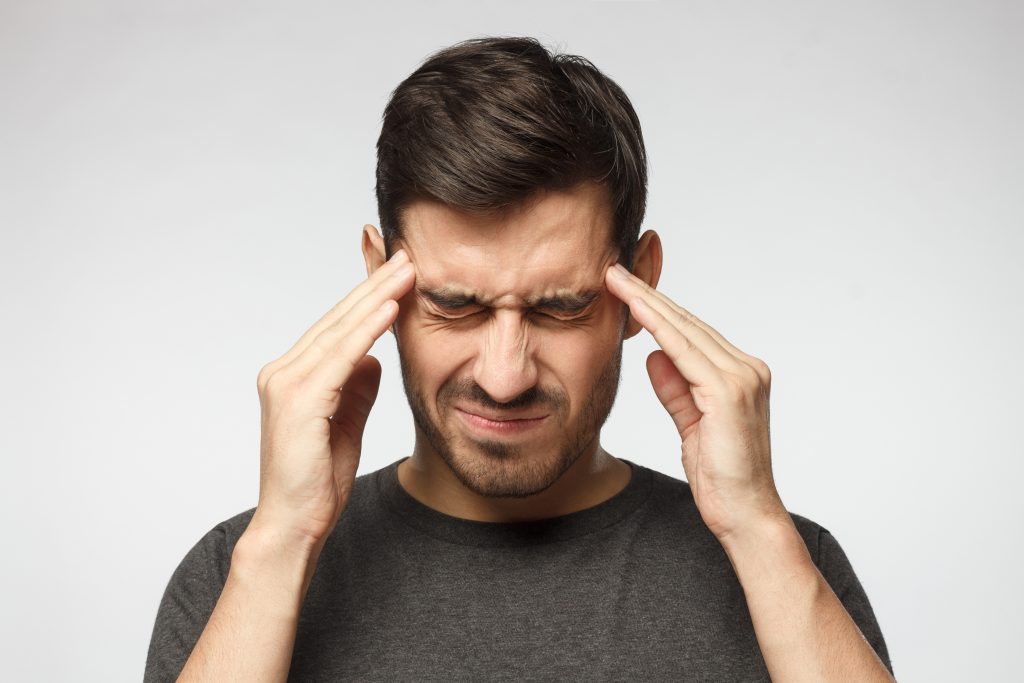Head injuries are scary for more than one reason; they usually hurt like crazy in the moments after they happen, but they can also have long-term consequences that linger far beyond the initial impact. Whether it’s the result of a sports injury, a fall, or a car accident, concussions can affect anyone. For some, these injuries percolate into a challenging condition known as post-concussion syndrome.
If you or a loved one have been struggling with symptoms that just don’t go away after a head injury, you’re not alone. Let’s explore what post-concussion syndrome is, its common symptoms, and available treatment options that can help you heal and regain control of your life.
What is post-concussion syndrome?
Post-concussion syndrome (PCS), more recently referred to as persistent post-concussive symptoms, is a condition in which physical, cognitive, and emotional symptoms continue for weeks, months, or even years following a concussion. While concussions are classified as mild traumatic brain injuries (mTBIs), the lingering effects can be anything but mild for those living with PCS.
The cause of persistent post-concussion symptoms is a combination of factors, including structural damage to the brain and disruptions in the way the brain processes a person’s sense of balance and vision. Early intervention is essential, as untreated PCS symptoms can significantly reduce your quality of life and make daily tasks more challenging.
Symptoms of post-concussion syndrome
The symptoms of post-concussion syndrome can vary widely from person to person. There also may or may not be a difference between the immediate symptoms following a concussion and the long-term symptoms associated with post-concussion syndrome.
Immediate symptoms of a concussion
- Dizziness or balance issues
- Nausea and vomiting
- Sensitivity to light and noise
- Confusion or disorientation
- Headache or pressure in the head
- Temporary loss of consciousness (in some cases)
- Blurred vision or double vision
- Slurred speech
These immediate symptoms are the brain’s first response to the trauma of the injury. While they typically improve within a few days or weeks, for some individuals, they give way to the prolonged challenges of post-concussion syndrome.
Symptoms of post-concussion syndrome
Here are a few common post-concussion symptoms that may persist from the initial injury or begin to manifest weeks afterwards:
- Persistent headaches: Often described as tension-like or migraine-like headaches.
- Cognitive impairments: Difficulty concentrating, memory issues, or trouble with problem-solving.
- Sleep disturbances: Insomnia, excessive fatigue, or irregular sleep patterns.
- Mood and emotional changes: Anxiety, depression, increased irritability, or feelings of nervousness.
- Sensitivity to light and sound: A heightened sense of discomfort in bright or noisy environments.
- Physical impairments: Dizziness or vertigo, neck stiffness or pain, or vision problems, such as blurred vision or difficulty focusing.
These symptoms can interfere with your ability to work, play, or participate in social activities. Without proper treatment, the risk of these symptoms lingering for months or even years increases.
Treating persistent post-concussive symptoms
Treating post-concussion syndrome often requires a multi-disciplinary approach to effectively treat each symptom you or your loved one are experiencing. The specific therapies and specialists involved in your treatment will depend on the nature and severity of your symptoms. For example, you might see a physical therapist for help with balance training and a cognitive or occupational therapist for memory and cognition rehabilitation.
These are a few ideas to demonstrate the wide-ranging symptoms that might be present and the therapy that might be most effective at treating them:
Types of Supportive Therapy for concussion symptoms
- Speech therapy: Beneficial for individuals experiencing cognitive delays, such as difficulty organizing thoughts or finding the right words. Speech therapists can provide strategies to improve communication and brain function.
- Vestibular therapy: Designed for those struggling with dizziness, balance problems, or sensitivity to motion. Vestibular rehabilitation helps retrain the brain to process spatial and movement-related information more effectively.
- Physical or neuromuscular therapy: A great option for treating persistent neck pain, muscle weakness, or other physical symptoms caused by the injury. Neuromuscular therapy focuses on improving strength, coordination, and muscle function.
- Behavioral therapy: If mood disturbances, such as anxiety or depression, are prominent, behavioral counseling or therapy can provide coping tools and emotional support.
- Vision therapy: Helpful for those with lingering vision issues or difficulty focusing. Eye exercises and training can restore visual coordination.
Learn more about your concussion treatment options
If you or someone you love has been experiencing lingering symptoms after a concussion, there’s no need to suffer in silence. In fact, for persistent post-concussion symptoms, assuming things will get better on their own is a misconception. On the other hand, personalized therapy can make a world of difference.
Learn more about how physical therapy and our unique resources at an Armor clinic near you might be able to help you heal quickly and effectively from post-concussion symptoms, no matter how long it’s been since the injury. Call a clinic or request your appointment online today.
